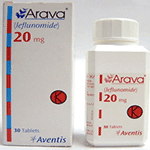Buy Zyvox online without prescription in Worldwide Pharmacies
Zyvox is antimicrobial agent which belongs to oxazolidinones class. The mechanism of action is the selective inhibition of protein synthesis in bacteria. By binding to the bacterial ribosomes active substance linezolid prevents the forming of a functional initiation complex 70S, which is a component of the translation process in the synthesis of protein. After ingestion remedy is quickly and intensely absorbed from the gastroenteric tract. Pharmacokinetics of antibiotic is unchanged in people with mild to moderate hepatic impairment, and therefore there is no need to adjust the dose. However, taking into account that preparation is metabolized as a result of non-enzymatic process, it can be argued that liver function does not significantly affect the drug’s metabolism of the drug. Patients who are at the beginning of therapy, are appointed the medication intravenously, in the future can be transferred to any dosage form for oral administration of the drug, and the titration is not required, because bioavailability of medicament’s intake is almost 100%. Zyvox 600 mg 60 pills may be found with low cost online. The duration of treatment depends on the causative agent, the severity and localization of the infection and the clinical effect. Indications are pneumonia (including community-acquired and hospital-acquired); infections of skin and soft tissue; enterococcal infections. During the period of treating is necessary to control the number of platelets and Hb in the blood of humans with an increased bleeding risk, anemia or a history of thrombocytopenia. Drug-store offers to buy Zyvox online at present time.
Generic name: Linezolid
Brand name: Zyvox
Zyvox - Comprehensive Usage Guide: instructions, indications, composition, side effects
Composition
- Active Ingredient: Linezolid
- Excipients: May include microcrystalline cellulose, pregelatinized starch, sodium starch glycolate, colloidal silicon dioxide, magnesium stearate, and other inactive ingredients depending on the formulation.
Official Forms
- Tablets: Available in various strengths, including 400 mg and 600 mg tablets.
- Oral Suspension: Available as a powder for reconstitution into an oral suspension, typically in 100 mg/5 mL concentration.
Pharmacological Group
Zyvox belongs to the pharmacological group of antibacterial agents, specifically oxazolidinones (ATC code: J01XX08).
Pharmacological Properties
- Pharmacodynamics: Linezolid exerts its bacteriostatic and bactericidal effects by inhibiting bacterial protein synthesis. It binds to the 23S ribosomal RNA of the bacterial 50S subunit, preventing the formation of the initiation complex and inhibiting the progression of the ribosome along the mRNA strand.
- Pharmacokinetics: Following oral administration, linezolid is rapidly and well-absorbed from the gastrointestinal tract. It is widely distributed in various body tissues and fluids, achieving therapeutic concentrations in skin, soft tissues, and respiratory tract infections. Linezolid is primarily metabolized in the liver and excreted via urine.
Indications
Zyvox is indicated for the treatment of various bacterial infections caused by susceptible pathogens, including:
- Skin and soft tissue infections
- Nosocomial pneumonia
- Community-acquired pneumonia
- Complicated skin and skin structure infections
- Vancomycin-resistant Enterococcus faecium infections, including cases with concurrent bacteremia
Contraindications
Zyvox is contraindicated in individuals with a known hypersensitivity to linezolid or any component of the formulation. It should not be used in patients receiving any form of monoamine oxidase inhibitors (MAOIs) or within two weeks of discontinuing MAOI therapy.
Interactions
Zyvox may interact with various medications, including selective serotonin reuptake inhibitors (SSRIs), serotonin-norepinephrine reuptake inhibitors (SNRIs), tricyclic antidepressants, and other serotonergic agents, potentially leading to serotonin syndrome or hypertensive reactions.
Specifics of Use
Zyvox tablets should be taken orally with or without food, preferably at evenly spaced intervals throughout the day, and swallowed whole with a full glass of water. The oral suspension should be reconstituted according to the instructions provided.
Dosage and Administration
The recommended dosage varies depending on the type and severity of the infection, as well as patient factors such as renal function. It is essential to complete the full course of treatment as prescribed, even if symptoms improve before completion.
Side Effects
Common side effects of Zyvox may include gastrointestinal disturbances (e.g., diarrhea, nausea, vomiting), headache, dizziness, and taste disturbances. Serious adverse effects such as myelosuppression, serotonin syndrome, and peripheral neuropathy are rare but require immediate medical attention if they occur.
Storage and Shelf Life
Zyvox tablets and oral suspension should be stored at room temperature (20-25°C) in a dry place, protected from light and moisture. Once reconstituted, the oral suspension should be refrigerated and discarded after the specified time period (usually 21 days).
Pregnancy and Breastfeeding
Zyvox should be used during pregnancy only if the potential benefit justifies the potential risk to the fetus. It is excreted in breast milk, so caution is advised when breastfeeding.
Impact on Motor Functions
Zyvox may cause dizziness or drowsiness in some individuals. Patients should exercise caution when driving or operating machinery until they know how Zyvox affects them.
Overdose
In the event of overdose, supportive measures should be initiated as needed. Linezolid overdoses are rarely associated with severe toxicity. Hemodialysis is not effective in removing linezolid from the bloodstream due to its extensive tissue distribution.
Conclusion
Zyvox remains an essential antibiotic option for the treatment of various bacterial infections, offering a broad spectrum of activity and a favorable safety profile. By understanding Zyvox’s mechanisms of action, indications, dosage, and precautions, patients and healthcare providers can collaborate to achieve optimal treatment outcomes in the management of bacterial infections. Always consult a healthcare provider for personalized medical advice.




